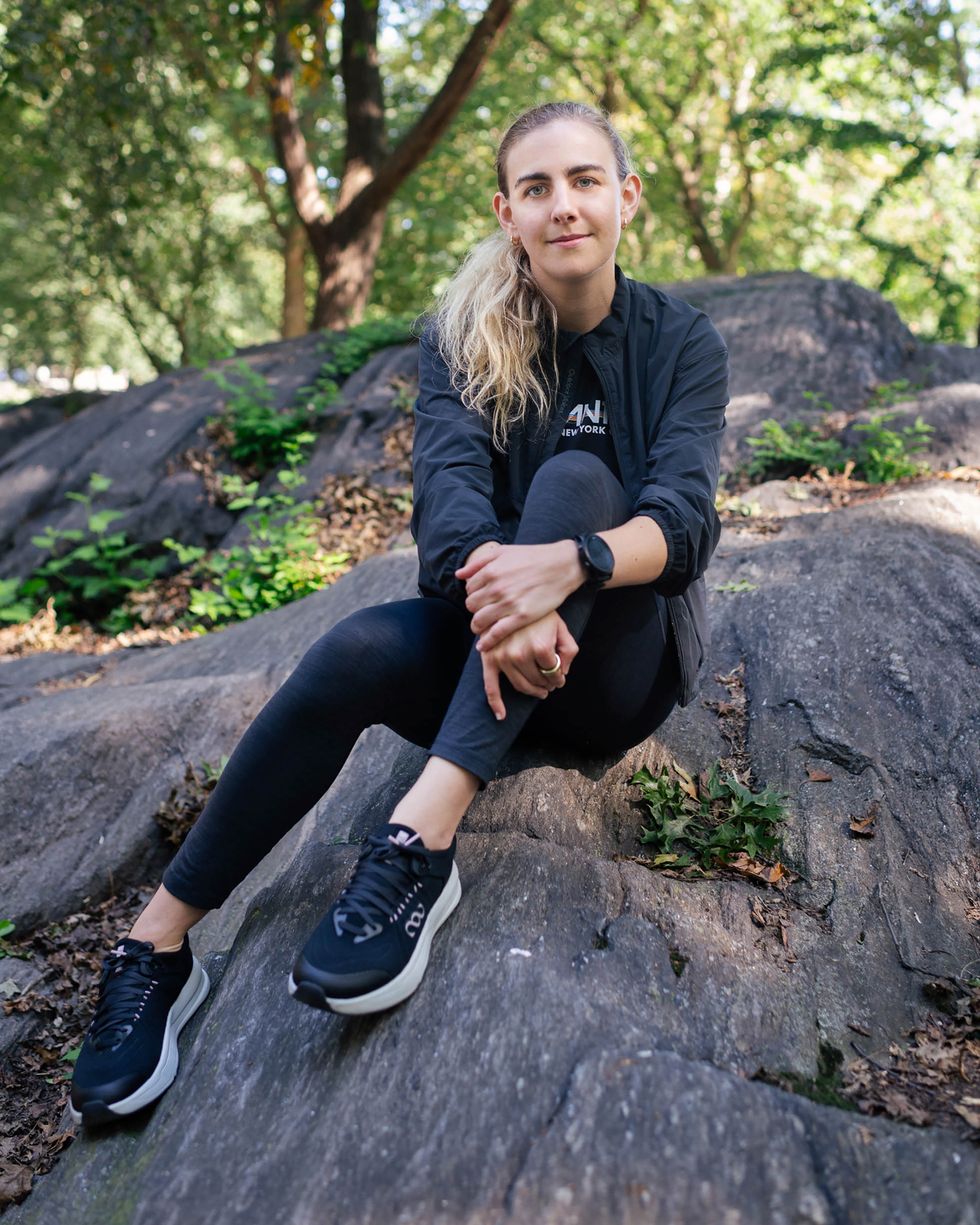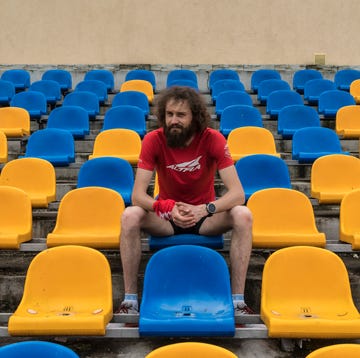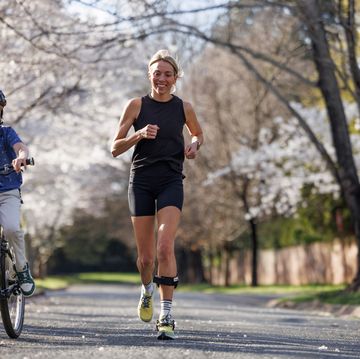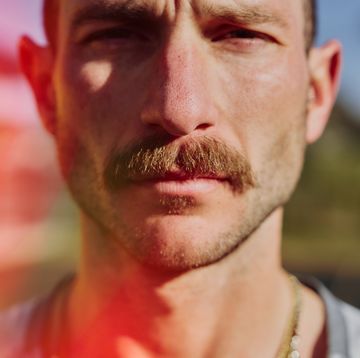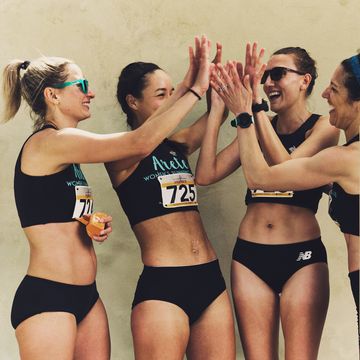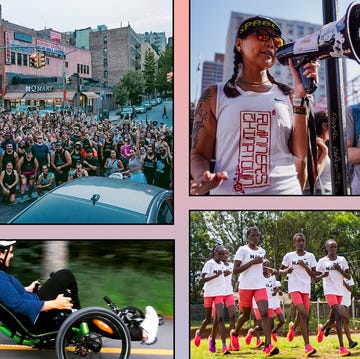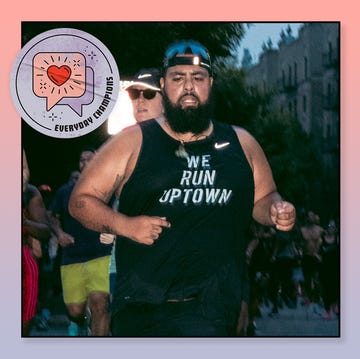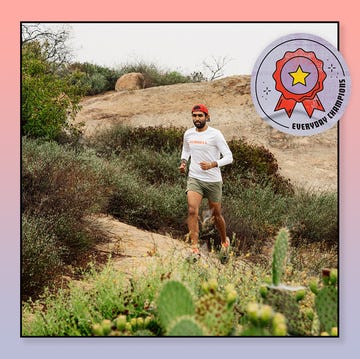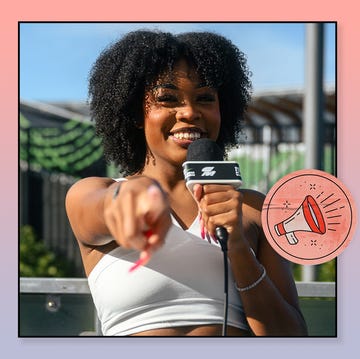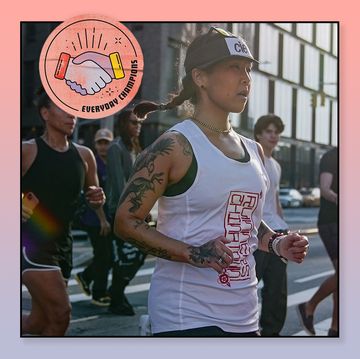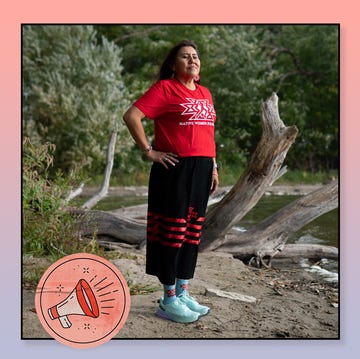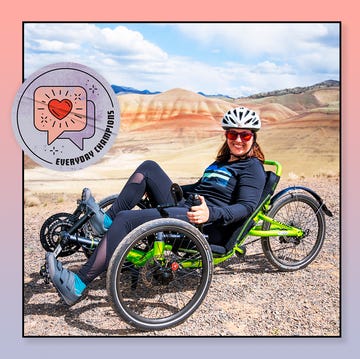In 2020, Mary Cain, the former mid-distance teenage phenom, had an idea. She thought about everything she hadn’t had when she was competing professionally—support, consistent mentorship, a sense of safety—and decided that no girl in sports should have to go through what she did. The year before, she had blown the whistle on the Nike Oregon Project, describing a culture of body-shaming and psychological abuse that led to severe depression, and even suicidal thoughts until she left in 2016.
Beyond her own experience, there was also “a big reckoning,” as Cain puts it, happening in track and field at the time, with people beginning to ask, “How inclusive are we, really, to everyone?” So Cain put pen to paper, and in 2021 launched Atalanta NYC, a professional running team and nonprofit that employs female runners to train part-time and mentor girls in underserved parts of New York.
Cain was motivated by her own privilege, she says, and the awareness that not everyone has the safety net she did. Her family had financial stability, and when she needed help, her parents could provide it. But her mother, also named Mary, grew up with more modest means, and the younger Mary wondered what her mom would have done if she’d ever found herself in a similar situation. “I don’t know if she’d have been OK,” Cain says.
Atalanta’s athletes meet weekly with girls in the Bronx, with plans to expand to other parts of New York City. “There’s always a running component to it,” Cain says of the sessions, “but a lot of it is talking more about all of the other parts of what make you a runner, getting to know the kids, and having support-based conversations with them.” Atalanta has also begun partnering with other community organizations to broaden its reach.
For Cain, the need for Atalanta reflects nothing short of a health crisis. Girls drop out of sports at a rate two times that of boys, and Cain wants to reverse that trend. “The more women are able to actually understand their bodies, the better equipped they’re going to be in life,” she says. And the best way for kids to learn about their bodies, she believes, is through sports. But if the focus is always on the competitive model that Cain experienced, “where everything’s about churn and burn,” too many girls will never want to do it again. “It’s not necessarily to develop the next Olympic champion,” she says, “but to develop a girl who, when she’s 30, is able to still run […] and therefore be empowered through that in so many different facets of what she does as a person.”
Cain didn’t launch Atalanta, named for the mythic fastest mortal in Greece, just to help kids. She also wanted to create a path for female professional runners to develop agency, rather than feeling like “a cog in the machine,” as she did, and to overcome the imposter syndrome that too many female athletes feel. “They really do know what they’re talking about,” Cain says. “They really are experts in their craft, and that should be celebrated, versus being made to feel like they’re the least powerful person in the room.”
Currently, Atalanta has two professional athletes, Karisa Nelson and Aoibhe Richardson, as well as a head coach, Julia Lucas. Operating with such a small team has limited Atalanta’s reach, but Cain hopes to bring on six to 10 additional athletes; many have expressed interest. The most essential piece, though, is finding women who recognize that being on Atalanta is only partly about their own success, she says. “Buy-in to the mission is incredibly important.”
Katelyn Hutchison: Breaking Barriers
David Alm is a Brooklyn-based writer and editor. His writing has appeared in GQ, Mother Jones, and Runner’s World, among other outlets.
